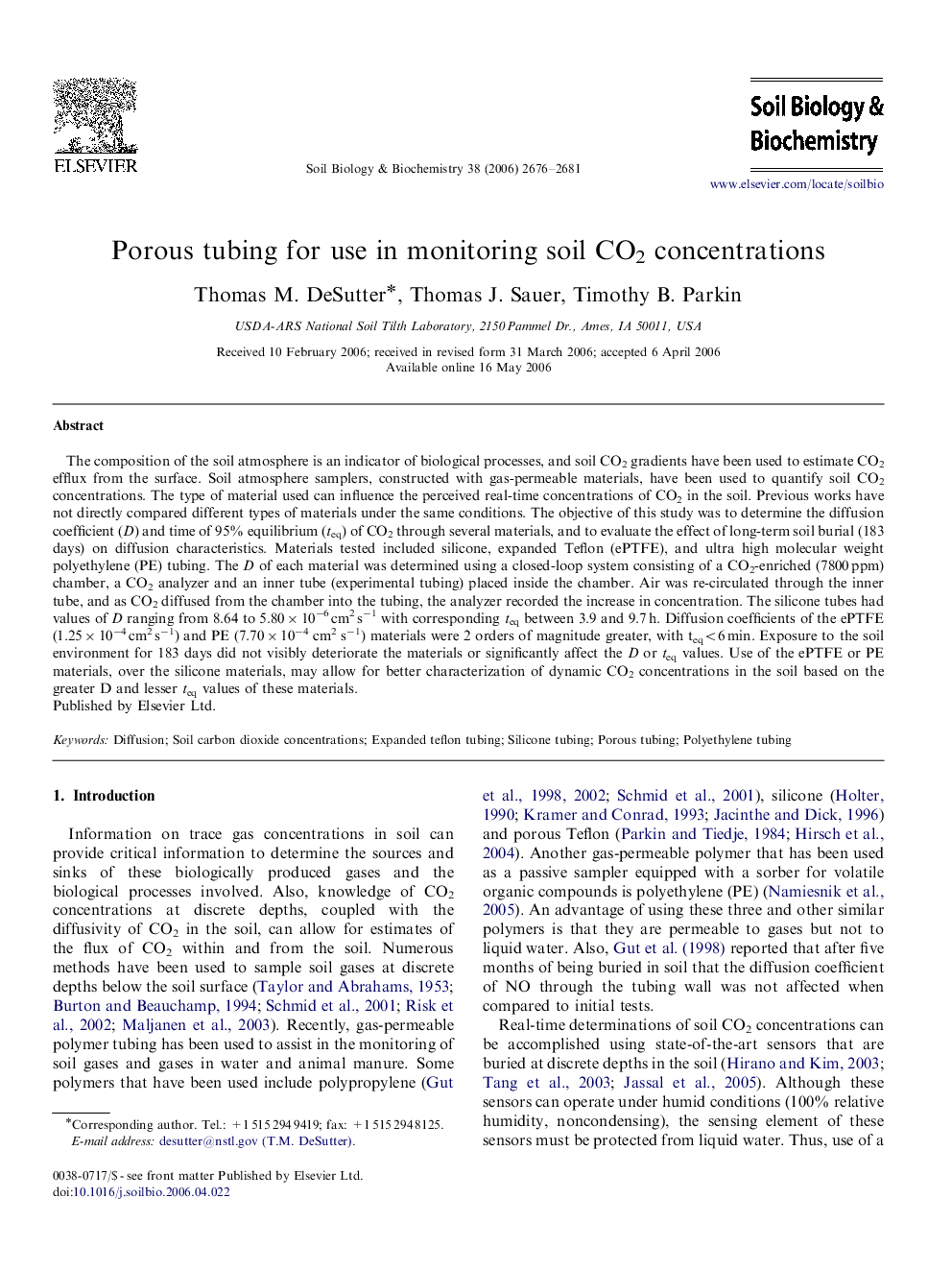| Article ID | Journal | Published Year | Pages | File Type |
|---|---|---|---|---|
| 2027120 | Soil Biology and Biochemistry | 2006 | 6 Pages |
Abstract
The composition of the soil atmosphere is an indicator of biological processes, and soil CO2 gradients have been used to estimate CO2 efflux from the surface. Soil atmosphere samplers, constructed with gas-permeable materials, have been used to quantify soil CO2 concentrations. The type of material used can influence the perceived real-time concentrations of CO2 in the soil. Previous works have not directly compared different types of materials under the same conditions. The objective of this study was to determine the diffusion coefficient (D) and time of 95% equilibrium (teq) of CO2 through several materials, and to evaluate the effect of long-term soil burial (183 days) on diffusion characteristics. Materials tested included silicone, expanded Teflon (ePTFE), and ultra high molecular weight polyethylene (PE) tubing. The D of each material was determined using a closed-loop system consisting of a CO2-enriched (7800Â ppm) chamber, a CO2 analyzer and an inner tube (experimental tubing) placed inside the chamber. Air was re-circulated through the inner tube, and as CO2 diffused from the chamber into the tubing, the analyzer recorded the increase in concentration. The silicone tubes had values of D ranging from 8.64 to 5.80Ã10â6Â cm2Â sâ1 with corresponding teq between 3.9 and 9.7Â h. Diffusion coefficients of the ePTFE (1.25Ã10â4Â cm2Â sâ1) and PE (7.70Ã10â4 cm2 sâ1) materials were 2 orders of magnitude greater, with teq<6Â min. Exposure to the soil environment for 183 days did not visibly deteriorate the materials or significantly affect the D or teq values. Use of the ePTFE or PE materials, over the silicone materials, may allow for better characterization of dynamic CO2 concentrations in the soil based on the greater D and lesser teq values of these materials.
Keywords
Related Topics
Life Sciences
Agricultural and Biological Sciences
Soil Science
Authors
Thomas M. DeSutter, Thomas J. Sauer, Timothy B. Parkin,
